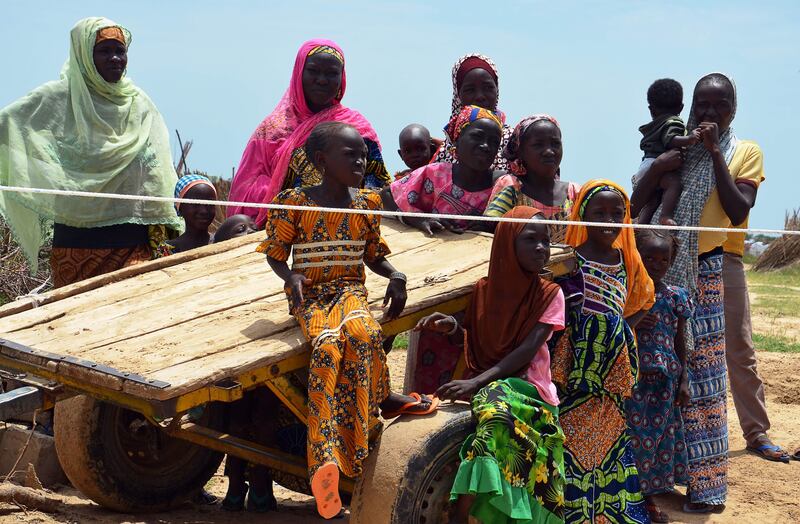A Nigerian teacher has won the UNHCR Nansen Refugee Award for his work opening schools amid conflict in north-eastern Nigeria.
Zannah Mustapha, who helped with the release of the Chibok girls kidnapped by Boko Haram in 2014, is renowned for championing the rights of displaced children affected by violence in the area to get a quality education.
He won the humanitarian award after founding a school 10 years ago in Maiduguri — the capital of Borno State and the epicentre of the Boko Haram insurgency.
The school stayed open throughout the conflict, which led to more than 20,000 killed across the Lake Chad region and millions more displaced.
The school provides free education, as well as free meals, uniforms and health care, to children affected by violence.
Those orphaned by the conflict on both sides are also welcomed into his classrooms as a sign of the reconciliation he hopes to achieve in the region.
_______________
Read more:
[ Chibok girls reunited with families after three years ]
[ Solutions needed for displaced, UAE Minister of Education says ]
[ United Nations warns that young Africans are becoming radicalised ]
_______________
"Conflict can leave children with physical and emotional scars that are deep and lasting," said UN High Commissioner for Refugees Filippo Grandi. "It forces them from their homes, exposes them to unspeakable atrocities, and often rips apart their families."
He said education was one of the most powerful tools for helping refugee children overcome the horrors of violence and forced displacement.
"It empowers young people, equips them with skills and works to counter exploitation and recruitment by armed groups," he said. "The work Mustapha and his team are doing is of the utmost importance, helping to foster peaceful coexistence and rebuild communities in north-eastern Nigeria. With this award, we honour his vision and service."
The announcement of the award comes as tens of thousands of Nigerian youth are growing up without an education.
The country's education sector is strained by its expanding youth population, and facilities in the north-east remain under attack by Boko Haram, who have destroyed schools and killed teachers. "Schools lie at the heart of a society," said the Norwegian Refugee Council's Secretary General Jan Egeland, whose organisation co-manages the Nanson Refugee Award project. "Destroying them crushes the chance of Nigeria's next generation succeeding. The recognition of Zannah Mustapha's brave work highlights the importance of education for the future of Nigeria."
In the decade since its inception, the school has grown from 36 students to 540. Thousands more children have added their names to its waiting list.
Last year, Mr Mustapha opened a second school just a few kilometres away from the first. Eighty-eight children, all of whom have fled conflict in the region, walk through its classroom doors every day.
Mr Mustapha's work in the region also includes negotiating the release of hostages.
When the 21 young women held captive for more than two years were released, he was instrumental in securing their freedom as well as the release of 82 additional Chibok girls in May this year.
“This school promotes peace,” he said. “It is a place where every child matters. These children shall be empowered in such a way that they can stand on their own.”






